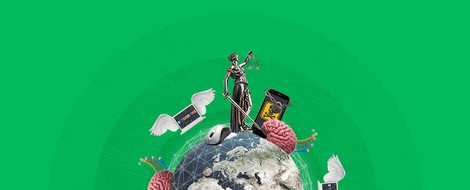Your podcast discovery platform
Curious minds select the most fascinating podcasts from around the world. Discover hand-piqd audio recommendations on your favorite topics.

piqer for: piqd Boom and bust Global finds Globalization and politics Technology and society
German media and technology journalist. Founding editor of piqd. Most of his piqs are digging into the new digital public sphere. How is the web changing public opinion? Who defines what's relevant and what's not? How can we make sure relevant information still finds an audience? How could alternatives to Facebook, Twitter and other commercial social networks look like?
Frederik is director of the media innovation think tank vocer.org. He's teaching "digital journalism" at the Hamburg Media School.
Why Social Networks Have To Pay A Price For The Hate Speech And Lies They Help To Spread
It's ridiculous how social networks insist on being neutral intermediaries for information. It's equally ridiculous how scholars, journalists and politicians insist social networks be just like other media companies. The truth, of course, lies somewhere in between. They are a new breed of media company.
But regardless of the accurate definition, it's crystal clear that social networks do have a massive influence on public opinion, and accordingly, they do bear the responsibility that comes with this influence.
So far social networks simply play dumb, and whenever possible dodge regulation and policing attempts with regards to the hate speech, lies and propaganda that circulates through their circuits. This won't change unless responsibility is forced upon them. Last week Germany's Justice Minister Heiko Mass led a bold strike against the status quo with his draft of the Netzwerkdurchsetzungsgesetz (hard to translate, even from bureaucratic German to intelligible German). The goal of this law is to force platform operators to react within 24 hours to comments and content that are clearly against the (German) law. In less obvious instances, platform operators have up to seven days. Now unfortunately, this law has so many severe flaws that it took another piq to name them all (a detailed analysis in German).
As a symbol and a last warning shot, its importance can hardly be overstated. I hope social networks take on their responsibility voluntarily. If not, politicians will take care of that, and judging from the draft, users and the freedom of speech will suffer at least as much as the platforms.
Wired tries to deliver a balanced view of the pros and cons of platform regulation. Why they still think platforms would self-regulate without pressure from lawmakers and the public is beyond me though. They haven't done so far, why should they start now?
